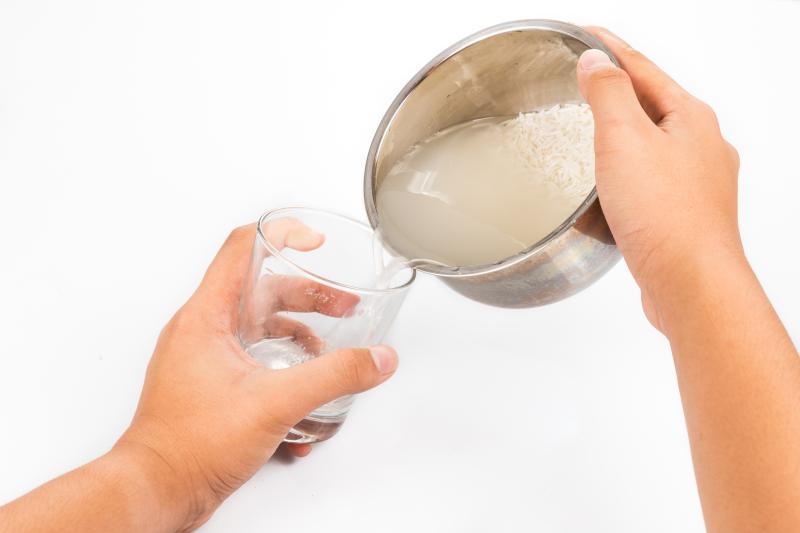Rice water is good for your garden
There’s an old saying: Don't throw the baby out with the bathwater. And don't throw out all those nutrients with water you have soaked rice in. That starchy water left over from soaking or cooking rice has lots of benefits for your hair, your skin and your garden.
Rice water is rich in minerals and vitamins that nourish skin cells, giving you a healthy, glowing complexion. Rice water also works wonders on your hair, especially hair that's been damaged by the sun or from dyes.
The chemical inositol found in rice water penetrates damaged hair and repairs it from the inside out, even fighting split ends. And best of all, rice water makes a great addition to your garden!
Rice is rich in nitrogen, phosphorous, potassium, magnesium, zinc, iron and sulfur. These nutrients are naturally left in the water after you rinse or boil rice, and you can save this water to use as a free fertilizer.
Recent university studies show that many garden plants, including tomatoes and sweet potatoes, had stronger root systems, grew taller and produced more leaves when fed rice water. Because rice water contains lots of starch, you will want to avoid starch buildup that can cause the soil to harden and not drain easily, so only use it about once a month. Too much starch can promote harmful fungi and bacteria that can cause root rot, and will also attract starch-eating insects such as silverfish.
Compared to chemical fertilizers, rice water is very safe to use on all of your plants, even houseplants. Unlike harsh synthetic fertilizers, rice water won’t cause leaf burn. Rice water even encourages beneficial bacteria to grow in your soil.
The easiest way to make rice water fertilizer is to cover rice with lukewarm water and let it sit for 45 minutes. After soaking the rice, stir it, then strain and save the water, which will contain beneficial bacteria, yeast and enzymes. This starchy liquid is ready to use on your garden and houseplants, especially African violets, spider plants and succulents. You can also use water left over from cooking rice; just make sure you haven't added salt, which can kill plants. You can use every type of rice to make rice water, including brown, jasmine, white and basmati.
You can also make fermented rice water. Fill a clean jar about three-quarters of the way up with rice water. Add one teaspoon of white sugar and four tablespoons of milk, mixing well. Cover the jar loosely with cheesecloth and store it at room temperature out of direct sunlight. Let this sugar, milk, and rice water mixture ferment for three to four days. Fermented rice water contains more lactic acid bacteria, which makes plants more resistant to disease and can even prevent powdery mildew.
Use rice water on your garden, and remember, don't throw the baby out with the bathwater!
















































